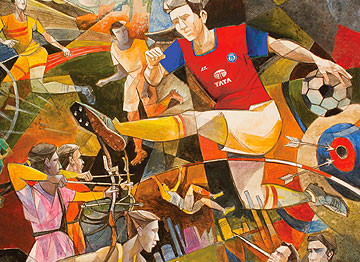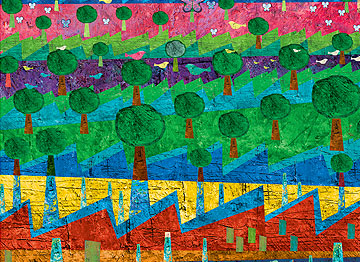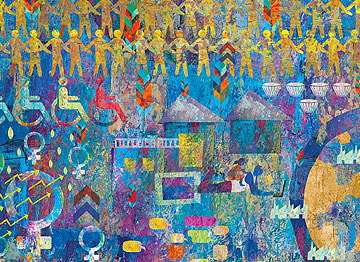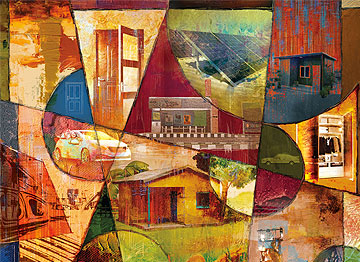Making Sports A Way Of Lifeby grooming tomorrow's stars

Since its inception, Tata Steel has been a nursery for sports. When he was envisaging Asia’s first integrated steel plant, the Tata Group founder Jamsetji Nusserwanji Tata also planned the model township of Jamshedpur. When Jamshedpur was planned (around 1900), he wrote to his sons to ensure that the city had wide streets, lots of trees, and grounds for cricket, hockey and football. He had the vision to realise that sports is an integral part of any city plan.
JRD Tata gave fruition to the Founder’s vision, inculcating sports as an integral part of Tata Steel’s corporate philosophy. The Company’s commitment towards the promotion of sports is manifested through separate departments for football, archery, athletics and more. Over time, an impressive array of infrastructure, matching international standards to support sports has been built.
- Apart from realising his father’s dream for Jamshedpur, Sir Dorabji Tata also promoted sports through his philanthropic activities. In 1919, he facilitated four athletes and two wrestlers to participate in the Antwerp Games. As president of the Indian Olympic Council, he financed the Indian contingent to the 1924 Paris Olympiad.
- Under JRD Tata’s stewardship Tata Steel introduced world class football to India through the Super Soccer series. Some of the top clubs of Europe and South America played against India’s best.
- The legendary Tata Football Academy (TFA), started in 1987, is an assembly line that supplies talent for almost 80 per cent of India's junior teams.
- Tata Steel successfully bid for the Jamshedpur franchise in the coveted Indian Super League (ISL) 2017. Winning the bid, Jamshedpur is the host city for the Jamshedpur Football Club.
- The Tata Athletic Academy (TAA), started in May 2004, promotes middle-distance runners who are given exposure to infrastructure of the highest international standard: a synthetic track, state-of-the-art gymnasium and international coaches.
- The Tata Archery Academy aims to help tribal people in Jharkhand maximise a skill they already possessed and thereby find their place in the national mainstream. It has helped people from this region become international stars.
- The Naval Tata Hockey Academy, inaugurated in mid-2017, seeks to provide the necessary institutional structure to nurture Indian talent for hockey leagues and international tournaments, as well as bring back the erstwhile glory of Indian field hockey through professionalising grassroot-level hockey and bringing the global best to train domestic coaches.
- Founded by legendary mountaineer Ms Bachendri Pal, the first Indian woman to climb Mt Everest, the Tata Steel Adventure Foundation is an outbound leadership institute which aims at developing able leaders for the future.
- Tata Steel also supports other sports at its JRD Tata Sports Complex in Jamshedpur. This world-class facility has a football ground and an eight-lane polyurethane track.
The Tata commitment to sports is not dependent on incentives; it's done because it's dear to the heart of the Group and its leaders. Rather than looking at what's in it for the Group, the Tatas have focused on what will take Indian sport ahead, and at helping individuals realise their sporting ambitions.
 Corporate
Corporate
 Sustainability
Sustainability
 Products & Solutions
Products & Solutions
 Investors
Investors
 Media
Media
 Careers
Careers
 Contact Us
Contact Us















